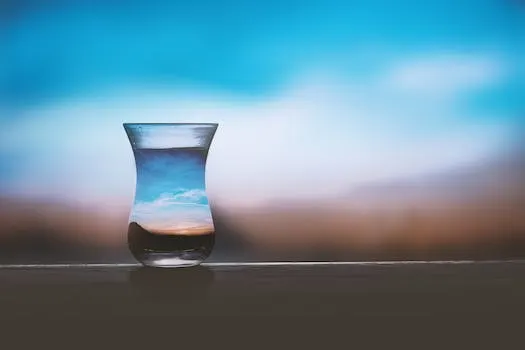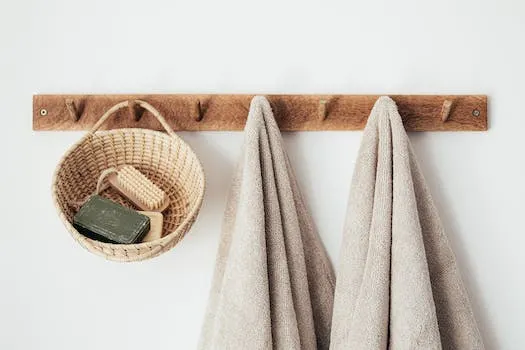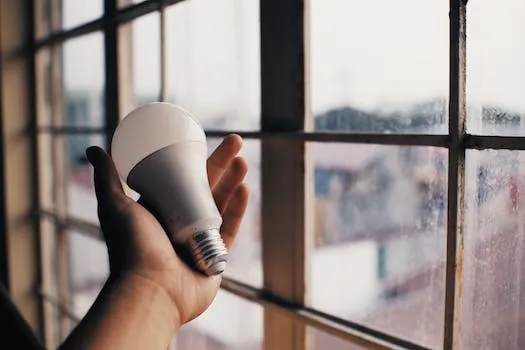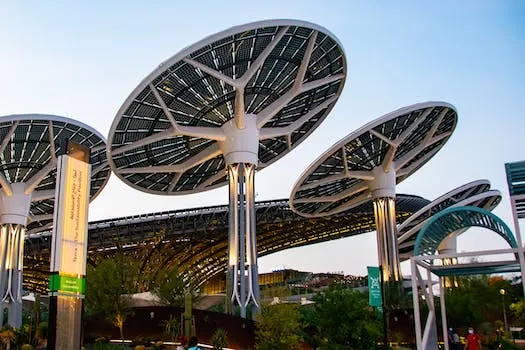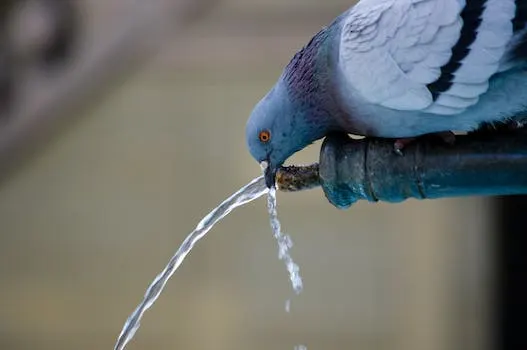
The Benefits of Living a Low-Water Lifestyle
Living a low-water lifestyle has many benefits for both the environment and your wallet. From reducing water bills to helping conserve natural resources, there are numerous advantages to cutting back on water consumption. To start, it's important to understand how much water you use in your daily life. An easy way to do this is by looking at your water bill; it will show you how much you're using each month and where most of that usage is coming from. Additionally, the fashion industry uses an incredible amount of water in its production process; billions of people lack access to clean drinking water while millions of gallons are used every day for washing clothes that have only been worn once.
Fortunately, there are simple steps we can take to reduce our individual water footprints and help conserve this precious resource. Limiting showers to five minutes or less can save up to 10 gallons per minute, while installing low-flow showerheads and faucets can reduce usage even further. Additionally, washing clothes with cold or warm instead of hot water can save up to 50% on energy costs as well as conserve more than 3,000 gallons per year! Finally, investing in a rain barrel or other type of rainwater collection system allows you capture free rainwater for use in watering plants or other outdoor activities without wasting tap water.
By making small changes like these we can all make a big difference when it comes to conserving our planet's natural resources and protecting the environment from further damage caused by excessive consumption of fresh drinking water. Not only will these changes help us become more conscious consumers but they'll also save us money on our monthly bills! So why not give living a low-water lifestyle a try? It's an easy way for everyone do their part in preserving our planet's precious resources!
Why Living a Low-Water Lifestyle is Important
Living a low-water lifestyle is an important step in preserving our precious water resources. water scarcity is a growing problem around the world, and reducing our water consumption can help reduce this issue. By checking for leaks in toilets, using efficient appliances, and taking shorter showers, we can all do our part to conserve water. Additionally, conserving water helps reduce pollution and conserve energy as it takes energy to produce the food we eat and materials for clothing and other products. Furthermore, using water more efficiently helps maintain safe levels of supplies which are essential for human health and the environment. Water is not only vital for human well-being but also serves as a home to many species of animals, plants, fish and birds; it is also used as a transport corridor or climate regulator. Therefore living a low-water lifestyle is essential in order to protect this irreplaceable resource from depletion due to overuse or mismanagement.
Tips for Reducing Your Water Consumption
Shorter showers are one of the easiest ways to reduce your water consumption. A five-minute shower can use up to 25 gallons of water, while a 10-minute shower can use up to 50 gallons. To help reduce your water footprint, try shaving three minutes off your shower time. Installing a low flow or WaterSense showerhead is another great way to save on water usage. These models deliver fewer gallons per minute than traditional fixtures and can save up to 2.5 gallons of water per minute!
In addition to shorter showers, there are other simple ways you can reduce your indoor water consumption. Replacing old plumbing fixtures with low flow versions is an easy way to cut back on the amount of water used in everyday tasks like brushing teeth and washing hands. This small change could save up 200 gallons of water each month! Washing full loads instead of multiple smaller loads when doing laundry is also an effective way to conserve more H2O; this could save up 5,000 gallons of year!
When it comes time for outdoor watering, timing is key! Watering early in the morning will help minimize evaporation and ensure that more moisture reaches the roots where it’s needed most. If you’re having trouble cutting down on shower time, try creating a playlist or setting an egg timer as reminders that it’s time wrap things up quickly! You could even bribe yourself with something special if you manage stick within your allotted timeframe – whatever works best for you!
The Benefits of Living Low-Water Lifestyle
Living a low-water lifestyle can have numerous benefits, both for your wallet and the environment. By reducing your water consumption, you can lower your water bill and save money on energy costs. Additionally, reducing your water usage can help reduce pollutants and conserve energy. To start saving both water and energy, look for ways to reduce or avoid wastage in the home. This will decrease the amount of water and energy used, helping you save time and money. Furthermore, by using less electricity or gas from utilities you can also save money on utility bills while conserving finite resources. Water is an essential human need that we cannot live without; however with effective conservation efforts we can improve our environment while saving money in the process.
Conclusion
Living a low-water lifestyle is an important step in conserving water and reducing your environmental impact. By following the tips outlined in this article, you can make simple changes that will help reduce your water consumption and make a positive impact on the environment. Start making small changes today and enjoy the benefits of living a low-water lifestyle.
One of the most effective ways to conserve water is to check for leaks in toilets, sinks, faucets, and other plumbing fixtures. A few drops of food coloring can be used to detect any leaks that may be present. Additionally, using less water saves energy and infrastructure costs as well as reduces contamination due to runoff or evaporation.
Gardening is another great way to reduce your ecological footprint while still enjoying nature's beauty! Watering early in the morning or late at night helps minimize evaporation loss while avoiding over-watering plants will ensure they are getting just enough moisture without wasting any extra resources.
There are also several other ways you can live a more sustainable life such as driving less often or choosing green energy sources for your home. Eating sustainably sourced foods like wild caught fish instead of farmed fish also helps reduce our environmental impact while having smaller families reduces our overall carbon footprint too!
Finally, it's important not to forget about climate change when considering how we affect our environment - but there are steps we can take every day that will help lessen its effects on us all! By living a low-water lifestyle with these tips in mind, we can all do our part to conserve resources and protect our planet for future generations!
